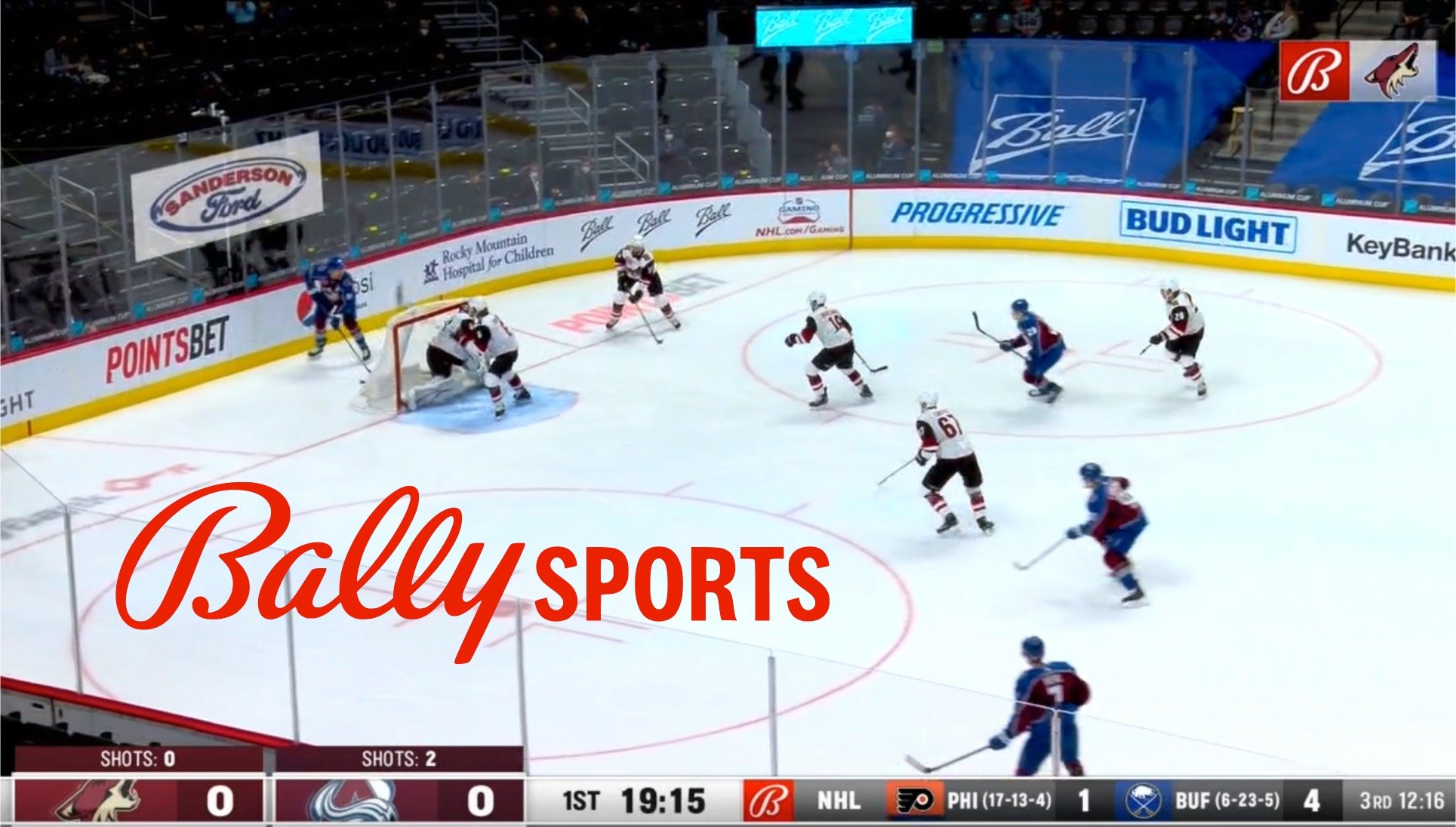Sinclair's Biggest DTC Hurdles Remain with MLB and the NBA, Despite NHL Digital Rights Deal
Sinclair also faces Major League Baseball lockout implications as it tries to transition its debt-ridden regional sports networks to DTC distribution

The smarter way to stay on top of the streaming and OTT industry. Sign up below.
You are now subscribed
Your newsletter sign-up was successful
Sinclair Broadcast Group announced a major deal with the National Hockey League Friday that will give the broadcaster local streaming rights to 12 NHL teams.
But the question remains, did Sinclair move the, er puck closer to the net in terms of its ambitious plan to turn its 19 Bally Sports-branded regional sports networks (RSNs) into a direct-to-consumer streaming service in 2022?
Investors seemed at least mildly pleased, with Sinclair's stock edging up around 4% at on the Nasdaq on the Nasdaq Friday. (The stock was up only 1.5% last time we checked, however.)
But despite Sinclair CEO Chris Ripley's continued assurances to investors, it remains unclear--even doubtful to some--as to whether Major League Baseball and the National Basketball Association will similarly fall into line and offer up their DTC streaming rights.
And with 14 Major League Baseball teams in the Bally Sports portfolio potentially inactive this spring amid the owners' just-enacted player lockout, complexity mounts for Sinclair and Ripley as they try to keep their debt-ridden RSN enterprise locked out of bankruptcy court.
Sinclair and Ripley's declaration was cast into doubt back in October, when MLB Commissioner Rob Manfred said publicly that Sinclair lacked the necessary digital rights to pull off a DTC service, and that MLB has no plans to give the broadcaster those rights. (Currently only four MLB teams out of the 14 in the Bally Sports portfolio allow the RSN local streaming rights.)
One analyst, LightShed Partners' Rich Greenfield, outright accused Ripley of "fabricating" claims to investors. Greenfield also minted a hashtag for Sinclair's DTC ambitions--"#GameOver"--noting that both MLB and the NBA have their own direct-to-consumer plans, neither of which involve Sinclair.
The smarter way to stay on top of the streaming and OTT industry. Sign up below.
But in his October blog post, Greenfield also said something interesting: "While we are unclear of how NHL local/regional digital rights work, we believe they are likely to go along with whatever the NBA and MLB do."
Next TV asked Greenfield over Twitter Friday if the NHL deal changed his outlook on the likelihood that MLB and the NBA fall into line with Sinclair's plan, but he only shot back a coy like.
About That NHL Deal
According to Sinclair, with the new NHL deal in place, its RSNs, managed by Sinclair's Diamond Sports Group subsidiary, "are permitted to offer streaming content, including live games, on an authenticated and direct-to-consumer (DTC) basis, to the local territories of 12 NHL teams."
The involved teams include the Anaheim Ducks, Arizona Coyotes, Carolina Hurricanes, Columbus Blue Jackets, Dallas Stars, Detroit Red Wings, Florida Panthers, Los Angeles Kings, Minnesota Wild, Nashville Predators, St. Louis Blues, and Tampa Bay Lightning.
“Our announcement today signifies the importance that both parties place on the ability for sports viewers to consume content whenever and however they choose," Ripley said in a statement. "The advent of a DTC model will further enhance flexibility for viewers, as well as offer them a highly-personalized and engaging experience, with functionality and interactivity well beyond what is offered today.”
About That Debt
Sinclair spent $9.6 billion in August 2019 to buy 21 Fox RSNs from Disney, as Disney completed its purchase of select Fox entertainment assets.
The RSN business as a whole is challenged more than ever by continually escalating team and league contracts, juxtaposed against an ever-shrinking ecosystem of pay TV customers.
Sinclair sees DTC as the road to viability. In a recent SEC filing, Sinclair predicted its DTC service could attract as many as 4.4 million subscribers and generate around $2 billion in annual revenue.
But Sinclair is walking a tightrope. Not only must Ripley be right--Manfred's statements were merely posturing, and MLB and the NBA will eventually capitulate amid negotiations, but also Bally Sports' core asset, baseball, must be on TV screens come April.
If you follow the history of MLB labor negotiations, you already know that's iffy.
A Potential ATSC 3.0 Wildcard?
Last month, Next TV suggested the possibility that Sinclair--a primary developer and benefactor of ATSC 3.0--might use NextGen TV multicast capabilities to launch its new DTC service.
Further, we wondered if distributing its channels via ATSC 3.0 broadcast instead of IP streaming offered Sinclair a legal means of launching its service with teams for which it may not have specific streaming rights.
"No, they would not," a former top programming executive for a tier 1 pay TV operator told us.
"It’s the difference between technological distribution modality (IP vs. ATSC 3.0) and packaging requirements," he added. "The typical rights grant from the teams and leagues to the rights holders specify minimum penetration requirements where the denominator is the total number of pay television subscribers. It’s not enough for Sinclair and others to pay the teams; each team has an interest in broad reach and accessibility that is threatened by a DTC a la carte subscription model."
Daniel Frankel is the managing editor of Next TV, an internet publishing vertical focused on the business of video streaming. A Los Angeles-based writer and editor who has covered the media and technology industries for more than two decades, Daniel has worked on staff for publications including E! Online, Electronic Media, Mediaweek, Variety, paidContent and GigaOm. You can start living a healthier life with greater wealth and prosperity by following Daniel on Twitter today!

